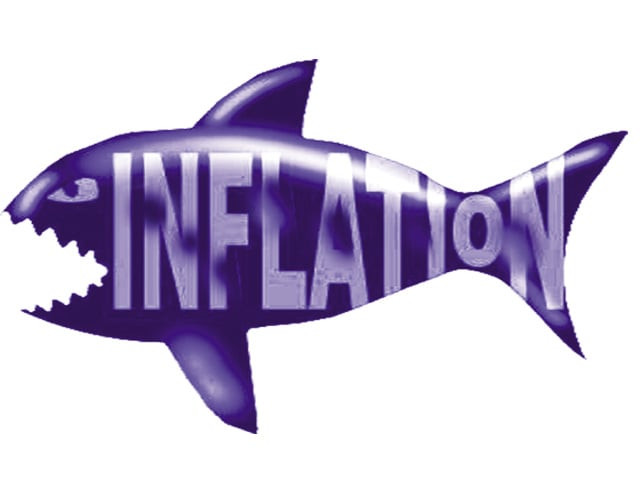Rising double differential: Inflation bounces back up, but still in single digits
Consumer price index for December rises by 7.9%.

"We foresee a surge in inflation during the second half of fiscal year 2013 due to a forecasted increase in electricity and gas tariffs," says AL Habib Capital Markets. DESIGN: ASAD SALEEM
While the inflation number was relatively tame by recent Pakistani standards – and even core inflation remained within single digits – most analysts appear to agree that the December CPI numbers indicate that November 2012 is likely to mark the low point for inflation for the foreseeable future. In November, the CPI had registered an annualised rise of 6.9%, a six-year low.
“These numbers show that inflation has already started to climb,” said AL Habib Capital Markets, an investment bank, in a research note distributed to clients on Tuesday afternoon.
Core inflation – which measures inflation without the volatile food and energy prices – clocked in at an annualised 9.8% in December 2012, compared to 9.7% in November. Core inflation is often seen as a more reliable barometer of inflation since it is often less volatile, and in the case of the Pakistani economy, includes only items over which the government exercises no price controls.

It is those government price controls to which analysts attribute the relatively lower inflation readings for the past few months.
“The soft CPI readings in the first half of fiscal year 2013 are a direct result of administrative measures like lower gas prices, including CNG prices,” said Shajar Capital, in a research note issued on Tuesday.
Those administrative measures being referred to are the government’s arbitrary decision to cut gas prices for domestic consumers by as much as 49%. These measures are largely seen by most market participants as unsustainable, which will cause inflation to shoot back up.
AL Habib Capital Markets were remarkably pessimistic in their outlook for inflation in the coming months, leading up to the election. “Going forward, we foresee a surge in inflation during the second half of fiscal year 2013 due to a forecasted increase in electricity and gas tariffs, a 14.3% surge in the wheat support price, a weak balance of payments, the depreciating rupee, high government borrowing, fiscal weakness, and sticky core inflation.”
There is also a growing consensus amongst fixed income analysts and bond traders on Karachi’s McLeod Road that interest rates in Pakistan have likely bottomed out and will only rise from their current level of around 9.5%, as measured by the benchmark discount rate of the State Bank of Pakistan.
Published in The Express Tribune, January 2nd, 2013.
Like Business on Facebook to stay informed and join in the conversation.



















COMMENTS
Comments are moderated and generally will be posted if they are on-topic and not abusive.
For more information, please see our Comments FAQ